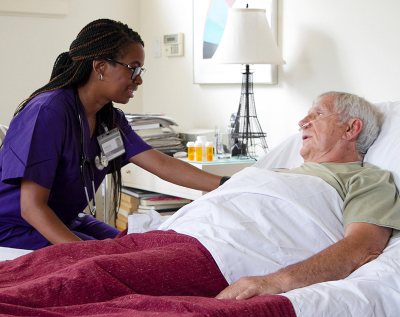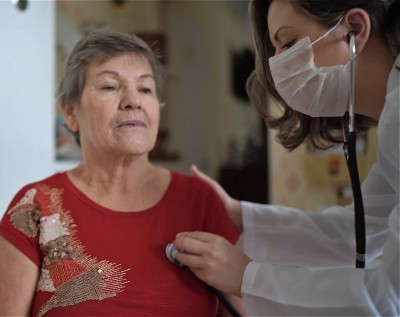Finding Higher Purpose as a Hospice Team Member
The journey toward the end of life is often marked by spiritual anxieties, conflicts, and questions that lack clear answers.
Luckily, hospice patients don’t make this journey alone. Each patient receives spiritual and psychosocial support from a chaplain, an expert in the deeply personal issues of meaning and morality that arise near life’s end.
Chaplains support patients and families of any religious or spiritual orientation—or even those with none at all. They go above and beyond to ensure their patients finish their journeys with comfort, dignity, and peace of mind intact.
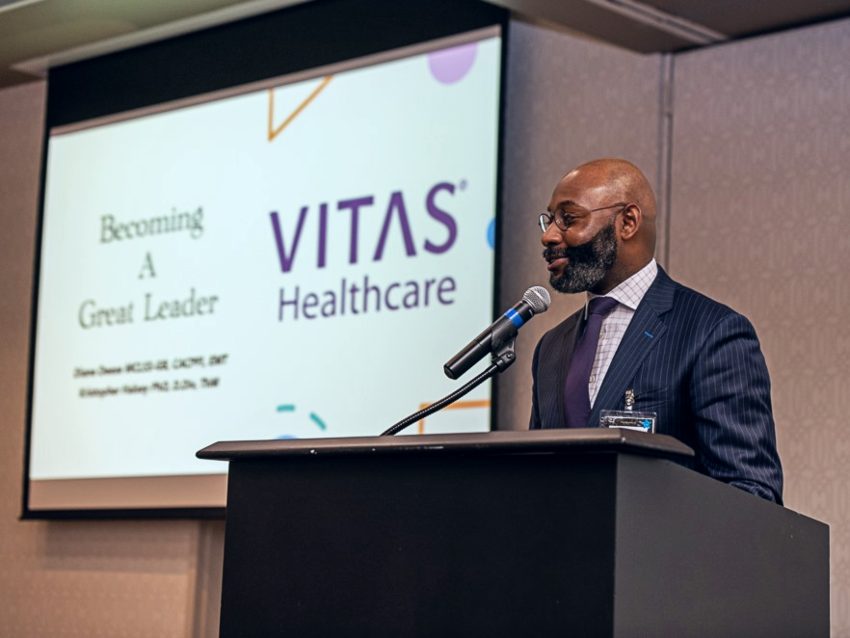
Kristopher Halsey has found ways to partner with the Philadelphia community in his former role as a chaplain and now in his role as bereavement services manager.
These pastoral professionals are members of a tight-knit interdisciplinary team that also features a physician, nurse, aide, social worker, volunteer, and bereavement specialist. Working together toward a common purpose, the hospice team achieves unbelievable outcomes for patients and their families.
Chaplains' care also extends to their colleagues, healthcare partners, and entire communities. In serving others, VITAS chaplains find personal meaning and fulfillment at work, every single day.
“I enjoy the ability to care for patients, the community connections, the partnerships that VITAS provides or offers to the community,” says Kristopher Halsey, bereavement services manager for VITAS in Philadelphia and former chaplain. “We’re just here to help in any way we can.”
‘Unconditional Acceptance Is Key’
Chaplains offer spiritual counseling to patients and families, help plan and participate in funeral services, conduct special ceremonies for veterans, and educate communities on the benefits of hospice. When requested, they provide extra-special services, like officiating weddings, overseeing butterfly releases, and performing Blessings of the Hands for their colleagues and healthcare partners.
They live and work with a can-do spirit, and in doing so they discover constant opportunities for personal growth.
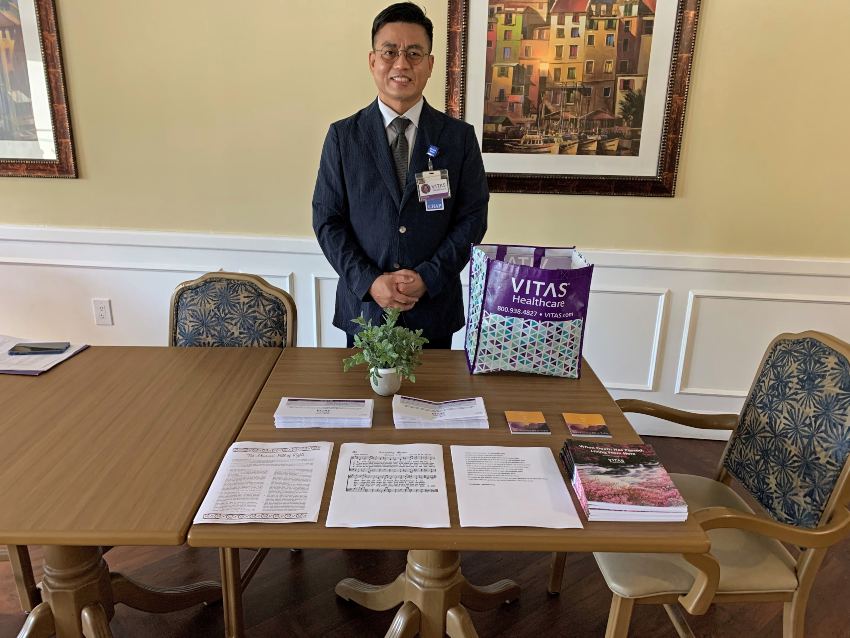
Chaplains such as Eui Hong are called upon to help prepare and participate in memorial ceremonies and other services to support families as they grieve.
“Those are great experiences to learn more about patients and families and people in your community, expanding your boundaries,” says Eui Hong, a home care chaplain for VITAS in Broward County, Florida. “You can really understand yourself better through other people.”
Chaplains help patients feel safe and comfortable, validating their beliefs without judgment or attempts to persuade. Even those who come from a background in ministry gladly embrace a people-first, religion-second mindset to ensure their patients and families receive the support they need, however they need it.
“I learned this from counseling: unconditional acceptance is key,” says Eui, who served as a pastor for second-generation Korean Americans in Los Angeles before joining VITAS. “That is the basic attitude to becoming a chaplain.”
Hospice Chaplains Always Find Common Ground
“Those in the chaplaincy should understand, it’s about opening your perspective of religion to worldwide,” Eui continues. “You’re not denying your own religion, you’re expanding the heart of love to take care of every soul, all spirits, all families.”
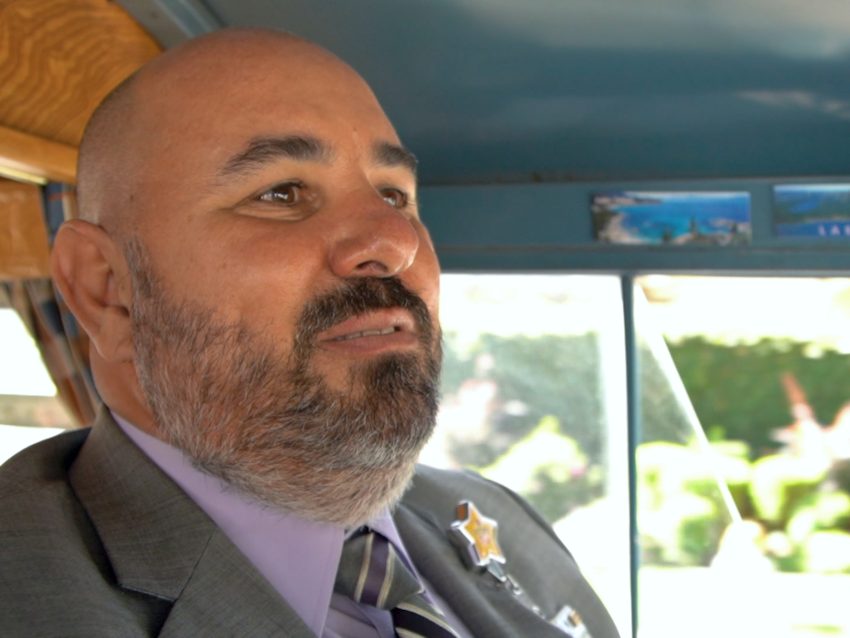
Ever Mesa, a VITAS chaplain in Sacramento, finds lessons in his conversations and experiences with the patients and families he serves.
Through this approach, VITAS chaplains always find common ground with patients, colleagues, and faith communities wherever they serve—a distinguishing value that VITAS has embraced since it was founded in 1978 by an ordained United Methodist minister and a registered nurse.
“We have new encounters every day with new patients and family members, but even with the same patients that we see through the months and years, every day is a new experience because things are always changing from day to day in their lives, and they teach us new lessons every day,” says Ever Mesa, a nursing home chaplain in Sacramento. “I found myself being ... a channel through which love can touch their lives, and that is exactly what we do here at VITAS.
“We provide love, care, compassion, kindness to our patients and family members, always from what they need at the moment.”
‘Bigger Than the Sum of Your Parts’
While hospice aims for comfort, not cure, chaplains have a special way to offer both, says Bert Chin, a nursing home chaplain on VITAS’ Broward County team.
“There are two kinds of recovery: the physical and the spiritual,” Bert says. “A person who is sick might never recover their strength again, but spiritually, they can recover by making their peace with God.”
Often, a chaplain relies on open-minded listening, conversation, and prayer to identify and work through a patient’s spiritual barriers. In other cases, a chaplain enlists the help of a patient’s religious leader to navigate more culturally specific concerns.
For Bert, that's part of doing “whatever I can do make a difference in your life.”
Driven by a can-do attitude and a compassionate heart for all people, chaplains’ specialized training and expertise perfectly complements the clinical and psychosocial care provided by their VITAS peers. Of course, other members of the team are happy to assist with prayers, rituals, or conversations about spiritual concerns, as determined by the patient’s plan of care and personal preferences.
“Working with your coworkers, being there together and helping each other out, just being a good team—that’s always an extra bonus,” says Peter Bai, a home care chaplain in Irvine, California. “You feel like you’re bigger than the sum of your parts.”
Work on a Team Dedicated to Making a Difference
At VITAS, every employee can be a meaningful part of a much larger purpose. It’s all about finding the calling in your career.
“There’s a spiritual conviction I have that I am doing the work that is, by my terminology, my calling from God,” Peter says. “It’s a sense of calling and purpose and knowing why I’m here, and that’s very rewarding.”
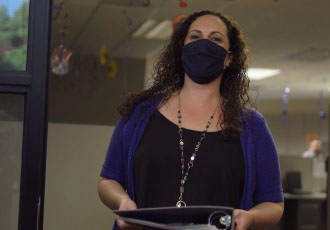
The VITAS Employee Promise
Behind every patient success story at VITAS—every last wish fulfilled, every loving memory made—is a team of compassionate, expert professionals doing their best to make a difference.
How VITAS Supports Our Employees Sign Up for Career News